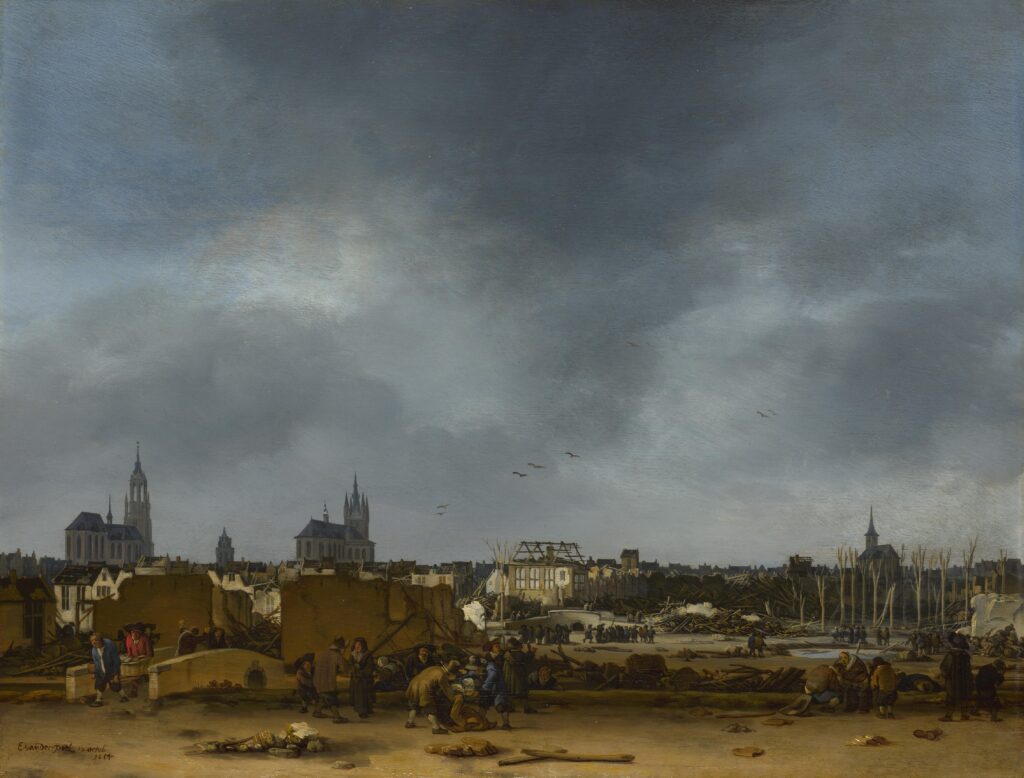On 12 October 1654, the Delft Thunderclap took place. At approximately 10:30 a.m., a quarter of the town was wiped away by an explosion in the gunpowder magazine of Holland, which was located in or near a former monastery. The cause of the explosion has never been established, but the story goes that a clerk entered the magazine carrying a burning lantern, sparks of which may have set fire to the highly flammable stash of gunpowder inside. The disaster elicited numerous responses by authors and artists from the Northern and Southern Netherlands, but it also inspired a reaction from Poland: in Gdańsk, the local historian, doctor, and teacher Joachim Pastorius showed solidarity with the Dutch victims by writing a mournful Latin poem, which he published in 1657. Pastorius had many Dutch contacts and likely based his verses on Dutch sources, specifically a famous poem by Joost van den Vondel. He probably sent it to his Dutch friends as a sign of compassion. Pastorius’s composition thus forms a fine example of the literary relations between Poland and the Dutch Republic. Moreover, the disastrous Delft Thunderclap provided him with the opportunity to shape an emotional community which bridged the two countries.

For a detailed analysis of Pastorius’s engagement with the disaster, see my Open Access chapter ‘Early Modern Community Formation Across Northern Europe. How and Why a Poet in Poland Engaged with the Delft Thunderclap of 1654’, in: H. van Asperen and L. Jensen (eds.), Dealing with Disasters from Early Modern to Modern Times. Cultural Responses to Catastrophes (Amsterdam: Amsterdam University Press 2023) 61-81.
*I originally wrote (a different version of) this post for the social media outlets of the Dutch Embassy in Poland. This was post no. 47.